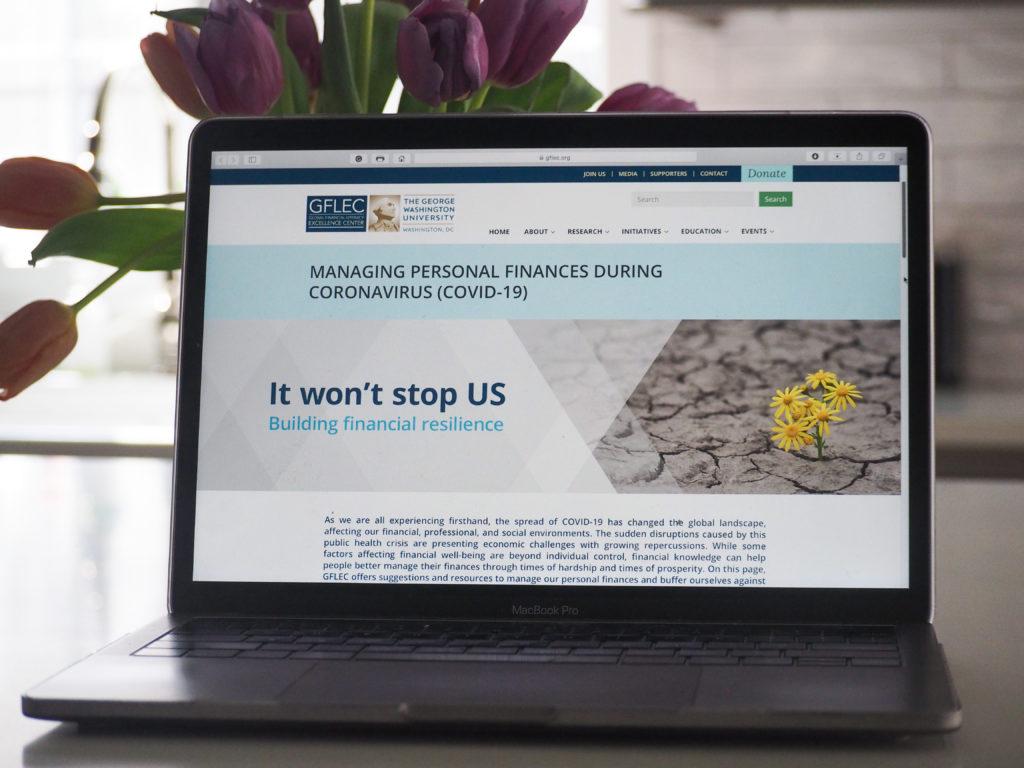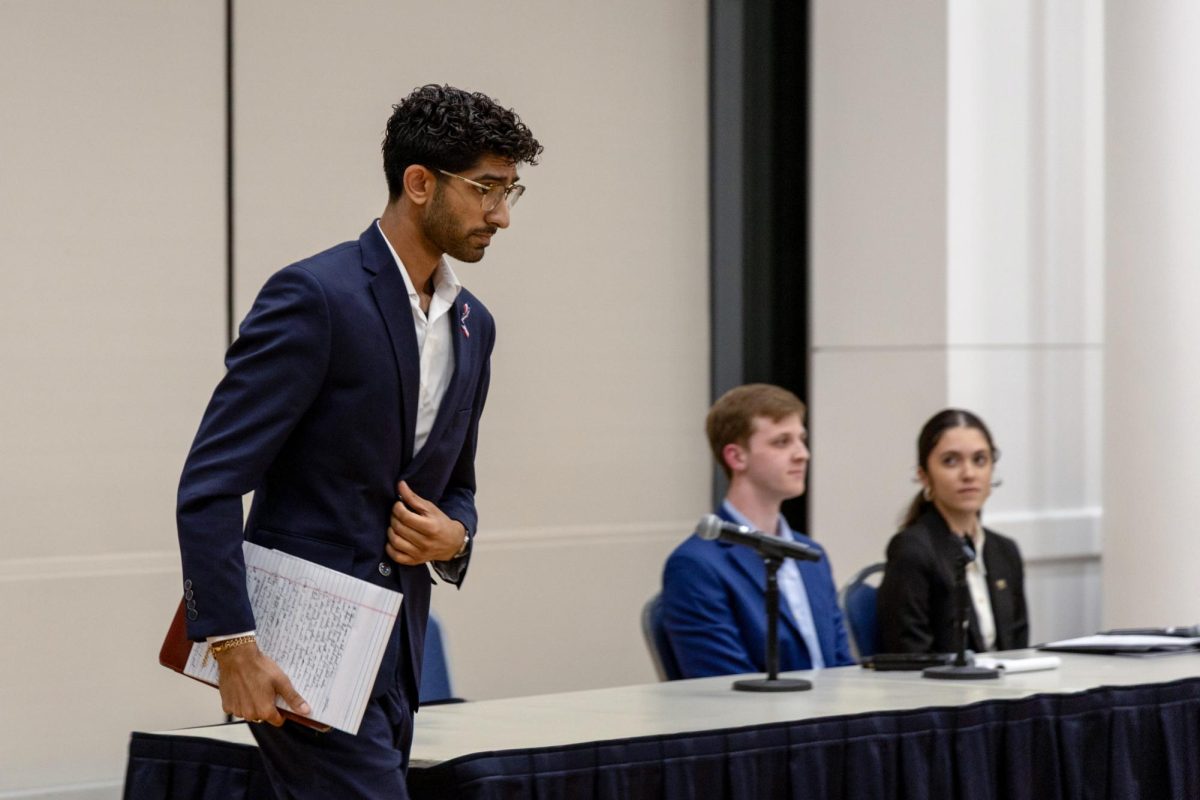A center in the School of Business released a webpage last week outlining how people can effectively manage their finances during the COVID-19 pandemic.
The Global Financial Literacy Excellence Center, housed in the business school, published a webpage with suggestions like taking advantage of government-offered economic relief resources and using online platforms like Bankrate.com to track finances. Annamaria Lusardi, the center’s founder and academic director, said some economic impacts of COVID-19 are beyond human control, but people can take measures like using alternative payment options to mitigate the effect on their finances.
“We have taken the initiative to set up a webpage on our center to provide personal financial suggestions or advice on how to deal with personal finances in times of emergencies,” Lusardi said.
Under each of the seven suggestions, the webpage includes links to online resources – like explanations of how to apply for unemployment insurance – explaining how people can follow the center’s suggestions.
Lusardi said center staff developed the webpage to ensure people take the initiative to buffer some of the financial blow resulting from the COVID-19 crisis. She channeled her experience teaching an undergraduate personal finance course into developing the recommendations, she said.
Lusardi added that she wanted to highlight government financial assistance programs on the webpage to ensure the public knows what resources are available and how to take advantage of them.
“We also tried to create the webpage as quickly as possible because as you can see, the crisis hit so quickly and so brutally we just week-after-week see statistics in the economy off the charts,” she said. “Look at the number of people claiming unemployment benefits. This is a really urgent project, and we tried to do it as urgently and as quickly as possible.”
More than 16 million Americans have applied for unemployment insurance amid the pandemic, ABC News reported last week.
Lusardi added that the public should adhere to the report’s suggestion to “take care of yourself and your health,” to better manage their finances and protect themselves and others against coronavirus. The suggestion includes a link to a Centers for Disease Control and Prevention webpage containing recommendations for how people can protect themselves and others against the virus.
“Taking care of your own health is very important and there is a strong correlation of course between our own health and financial health, so the more we follow and abide by the rules that we are given, the better our personal finances are also going to do,” Lusardi said.
Mental health experts recommended last month that students maintain social connections with friends and family and preserve as much of their daily routine as they “safely” can.
She added that she is trying to promote the webpage to ensure as many people as possible can benefit from its suggestions.
“This is also a way to say your personal finance is clearly very important and it shows it’s worth it in particular during a financial crisis,” Lusardi said. “But we should learn from the financial crisis so that we are better prepared in the future.”
Robert Van Order, a professor of finance and economics, said he hopes the webpage will help the general public think more clearly when managing their finances during the pandemic.
Of the webpage’s seven suggestions, Van Order said he would recommend taking advantage of government services like unemployment benefits to make hardship adjustments in financial contracts and to rebuild a buffer of savings.
“Look into loans and programs that give or lend you cash for the short run,” Van Order said in an email. “Don’t be afraid of debt.”
Gergana Jostova, a professor of finance, said the center is doing a “great job” promoting literacy and research in literacy, which is especially important given the economic hardship COVID-19 poses.
“I see that it is aimed at giving people information on how to better manage their finances while dealing with the crisis, like starting to save and invest, refinancing their home, getting a loan, things like that,” Jostova said in an email. “Things that generally help people make better financial decisions.”
Kelsey Sheehy, a personal finance expert at NerdWallet, a personal finance mobile application, said the webpage will help the millions of people currently in “financial crisis mode.” She said the public can benefit from adhering to the report’s suggestions regarding unemployment insurance, mortgage assistance and student loan forbearance.
“If you have an emergency fund, don’t be afraid to dip into it,” Sheehy said in an email. “This is an emergency. You need to keep a roof over your head, food on the table and the heat and lights on.”
Sheehy said dealing with the pandemic can be overwhelming, but she encourages people who need financial assistance to reach out for help from lenders and credit card companies. She said taking measures like meal prepping, cutting back on food delivery and canceling gym subscriptions can save money during the pandemic.
“Those fortunate enough to still have a job can use this time at home to scale back their expenses,” Sheehy said.





